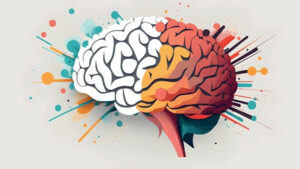What is Emotional and Psychological Health?

Emotional and psychological well-being encompasses our feelings, thoughts, and interactions with others. It determines how we handle stress, make decisions, and maintain relationships. A positive mental state helps us reach our potential, navigate challenges, and contribute meaningfully to our communities. On the other hand, neglecting emotional health can impair daily functioning and diminish overall quality of life.
Learn more about emotional health from the National Institute of Mental Health (NIMH).
Why Prioritizing Well-being Matters
Your emotional balance is as crucial as physical fitness. It shapes productivity, nurtures relationships, and fosters happiness. Ignoring it can lead to stress, anxiety, or depression, which may escalate into long-term issues. Addressing emotional health is key to personal growth and a thriving society.
For further insights, visit MentalHealth.gov.
Common Psychological Disorders to Be Aware Of
Awareness of prevalent mental health conditions helps with early identification and treatment. Below are some common disorders:
- Major Depressive Disorder: Persistent sadness, loss of interest, and feelings of hopelessness. Explore treatment options on Mayo Clinic.
- Anxiety Disorders: Includes panic attacks, generalized anxiety, and phobias that affect daily life.
- Bipolar Disorder: Characterized by extreme mood swings between manic and depressive states.
- Obsessive-Compulsive Disorder (OCD): Obsessions or compulsions interfering with everyday activities.
- Post-Traumatic Stress Disorder (PTSD): Trauma-induced flashbacks, nightmares, and heightened anxiety.
For more details on these disorders, check Psychology Today.
Recognizing Early Signs of Struggles
Identifying early signs is crucial for taking timely action. Watch out for:
- Persistent sadness or excessive worry
- Loss of interest in hobbies
- Sleep disturbances or changes in appetite
- Difficulty focusing on tasks
- Social withdrawal or feelings of hopelessness
- Physical symptoms without medical cause
Learn to spot symptoms on the World Health Organization (WHO) website.
Practical Ways to Boost Mental Resilience
Adopting healthy habits can significantly enhance emotional well-being:
- Engage in Self-Care: Prioritize activities that promote relaxation and happiness.
- Exercise Regularly: Physical activity reduces stress and improves mood.
- Connect with Loved Ones: Building strong relationships provides emotional support.
- Seek Therapy or Counseling: Professional guidance is invaluable for managing challenges.
- Practice Mindfulness and Meditation: These techniques improve focus and lower stress.
- Follow a Balanced Diet: Proper nutrition supports brain and body health.
- Establish a Routine: Structure in daily life creates stability and a sense of control.
Discover mindfulness techniques on Headspace.
When Professional Help is Essential
If you or someone you know faces:
- Suicidal thoughts or self-harm tendencies
- Inability to handle daily responsibilities
- Extreme mood changes
- Dependency on substances
It’s critical to seek immediate professional help. Early intervention improves outcomes.
Find resources through the National Alliance on Mental Illness (NAMI).
Share Your Journey
Discussing emotional struggles openly can inspire others and break societal stigma. Your story might provide hope to someone in need. Leave a comment below and join the dialogue about emotional well-being.
Let’s work together to promote a world where psychological health is valued as much as physical health. Remember, seeking help reflects strength, not weakness.
Additional Resources
- Mental Health America (MHA): A hub of educational resources and support.
- Active Minds Blog: Real stories and advice for young adults navigating life.
- Verywell Mind: Expert advice on mental and emotional wellness.


